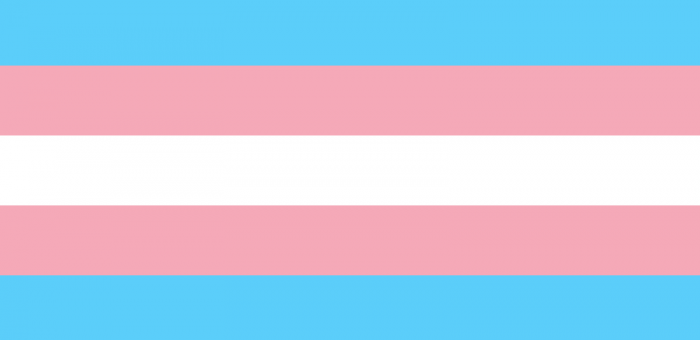Introducing two bills to protect gender identity and expression privacy rights
Yesterday in the legislature I had the pleasure of introducing five remarkable youth: Megan Walker, Grayson Threlfall, Astrid Nielson-Miller, Alex Bradley and Avery Williams. They, together with 20 other British Columbia youth, are working with Dr. Lindsay Harriet at the University of Victoria on writing a book about what it’s like to grow up as a transgender person in 2018. Their project is called The Transgender Tipping Point.
 But their good work goes far beyond the book that they are writing. A few weeks ago I met with youth working on this project. One of them raised the important notion that two key bills, the Freedom of Information and Protection of Privacy Act and the Personal Information Protection Act did not protect gender identity and expression or contained gendered language that did not instill confidence in the transgender community concerning the interpretation of the act.
But their good work goes far beyond the book that they are writing. A few weeks ago I met with youth working on this project. One of them raised the important notion that two key bills, the Freedom of Information and Protection of Privacy Act and the Personal Information Protection Act did not protect gender identity and expression or contained gendered language that did not instill confidence in the transgender community concerning the interpretation of the act.
I agreed and so worked with them, together with a legislative intern Kayla Phillips, to draft amendments to these bills. Today I introduced both the Freedom of Information and Protection of Privacy Amendment Act, 2018 and the Personal Information Protection Amendment Act, 2018.
Below I reproduce the video and text of the introductions as well as our accompanying press release. I look forward to work with my colleague Spencer Chandra Hebert in the BC NDP to see if we cant get these bills passed in a timely fashion.
Video of Bill Introductions
Text of Bill Introductions
BILL M208 — FREEDOM OF INFORMATION AND PROTECTION OF PRIVACY AMENDMENT ACT, 2018
A. Weaver: I move that a bill intituled the Freedom of Information and Protection of Privacy Amendment Act, 2018, of which notice has been given in my name on the order paper, be introduced and read a first time now.
The right to privacy is well established in British Columbia, as is the right to be free from discrimination because of gender identity and expression. Under the Freedom of Information and Protection of Privacy Act, however, gender identity and expression is not recognized as a category of personal information that must be protected when its disclosure may harm a third party.
In addition to proposed changes to ensure the protection of gender identity and expression in freedom-of-information releases, the bill also proposes a move to gender-inclusive language. This would demonstrate a commitment to protect the personal information of gender identity and expression in the legislation to an even larger extent and provide the act with an update making it more representative of the people it is meant to protect.
I wish to recognize the young members in the gallery today, who have been quite instrumental in bringing this to my attention, as well as the good work done by the member for Vancouver–West End, whose championing of this in the Legislature over many years has also informed me and others as to the importance of acts like these.
Mr. Speaker: The question is first reading of the bill.
Motion approved.
A. Weaver: I move that the bill be placed on the orders of the day for second reading at the next sitting of the House after today.
Bill M208, Freedom of Information and Protection of Privacy Amendment Act, 2018, introduced, read a first time and ordered to be placed on orders of the day for second reading at the next sitting of the House after today.
BILL M209 — PERSONAL INFORMATION PROTECTION AMENDMENT ACT, 2018
A. Weaver: I move that a bill intituled the Personal Information Protection Amendment Act, 2018, of which notice has been given in my name on the order paper, be introduced and read a first time now.
The protection of people’s private and personal information is essential, especially when the information could have negative impacts or when its release was not consented to. Too often, personal information regarding gender identity or expression is revealed.
This amendment would replace 16 instances of gendered language throughout the act with gender-neutral language. By explicitly making a point of doing this, it reinforces to those who may rely on the act that gender identity and expression is important personal information that should not be revealed without that party’s consent. This bill will build trust between those who wish to keep their gender identity and expression private and those they seek guidance from concerning personal and confidential issues.
I would like to thank for this, as well, the youth in the gallery above, for bringing this to my attention, and once more to the member for Vancouver–West End, who was an advocate for language and issues like this over the years and has also made this an important topic of discussion in the Legislature.
Mr. Speaker: The question is first reading of the bill.
Motion approved.
A. Weaver: I move that the bill be placed on the orders of the day for second reading at the next sitting of the House after today.
Bill M209, Personal Information Protection Amendment Act, 2018, introduced, read a first time and ordered to be placed on orders of the day for second reading at the next sitting of the House after today.
Media Release
March 15, 2018
Weaver introduced private members bills to protect and acknowledge diverse gender identities
For immediate release
VICTORIA, B.C. – Andrew Weaver, leader of the B.C. Green Party, introduced two private members bills to that would further the rights of British Columbians with diverse gender identity and expression. The bills are amendments to the Freedom of Information and Protection of Privacy Amendment Act (FIPPA) and the Personal Information Protection Amendment Act (PIPA).
“Personal information such as sexual orientation, race, ethnicity and religious affiliation is already protected under FIPPA, in 2018 we should absolutely include gender identity and expression,” said Weaver.
“People with diverse gender identity and expression still face discrimination and far too often violence. It is essential that this information be protected to ensure it is not be released without their consent.”
Weaver was made aware of the need for these changes after meeting with local trans youth from The Trans Tipping Point Project, a UVic initiative organized by Dr. Lindsay Herriot and Kate Fry, with young trans people from across Canada.
“It was an amazing feeling to speak truth to power, and to be heard and listened to, and then have something done about it. I am incredibly thankful for the opportunity, and to everyone who supported us in making this happen,” said Avery Williams, one of the Trans Tipping Point Project youth.
The amendment to FIPPA would ensure that information regarding an individual’s gender identity and expression cannot be revealed by the head of a public body, and that it must be redacted in Freedom of Information Requests. The amendment to PIPA would replace instances of gendered language (he and she) with gender neutral language, reinforcing the principle that gender identity is important and is personal information that should not be revealed without consent.
-30-
Media contact
Jillian Oliver, Press Secretary
+1 778-650-0597 | jillian.oliver@leg.bc.ca





One Comment
So teaching kids that boys can be girls and then hiding it from their parents passes for ‘diversity’ in your world? Bizarre and sick.